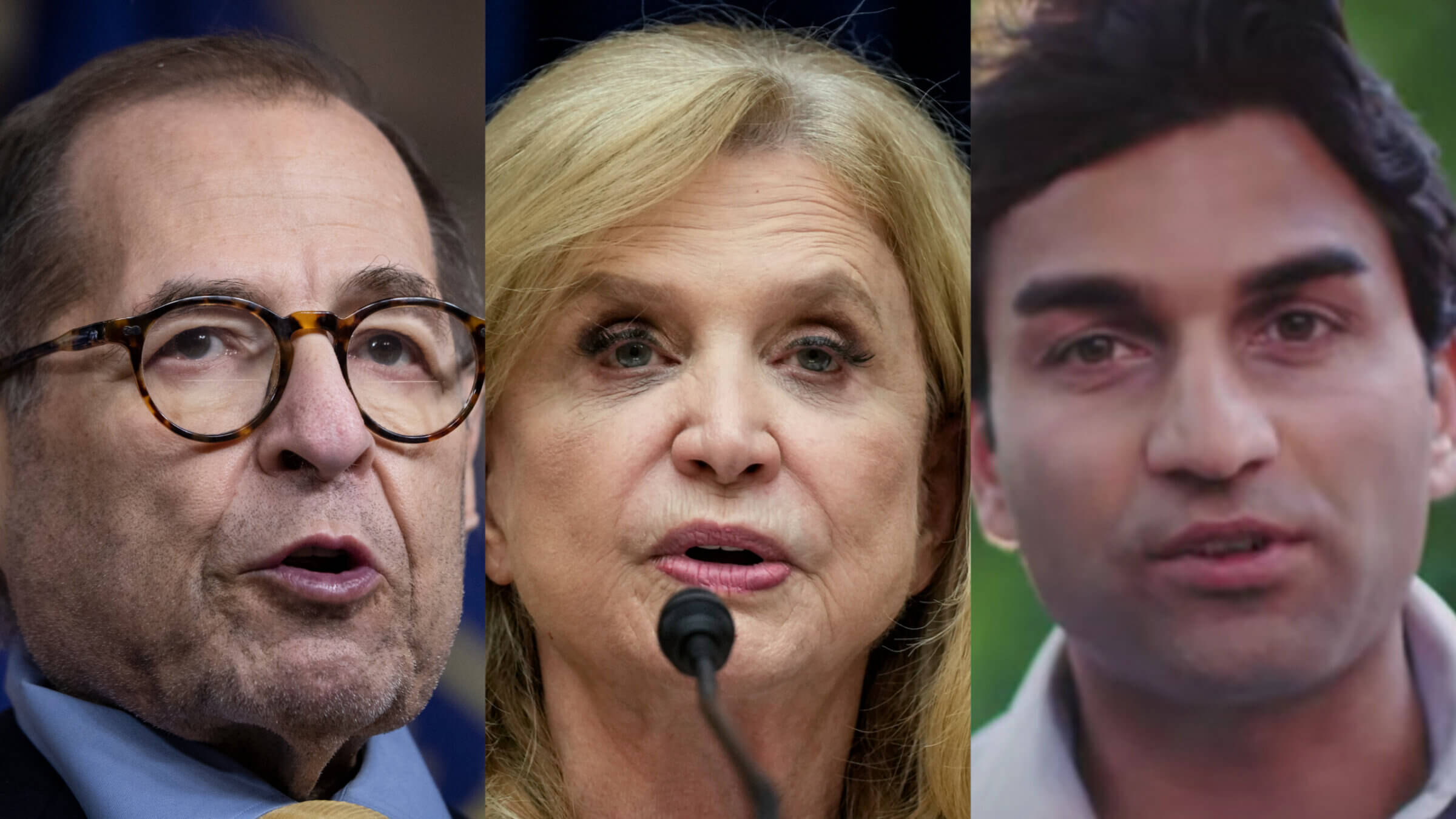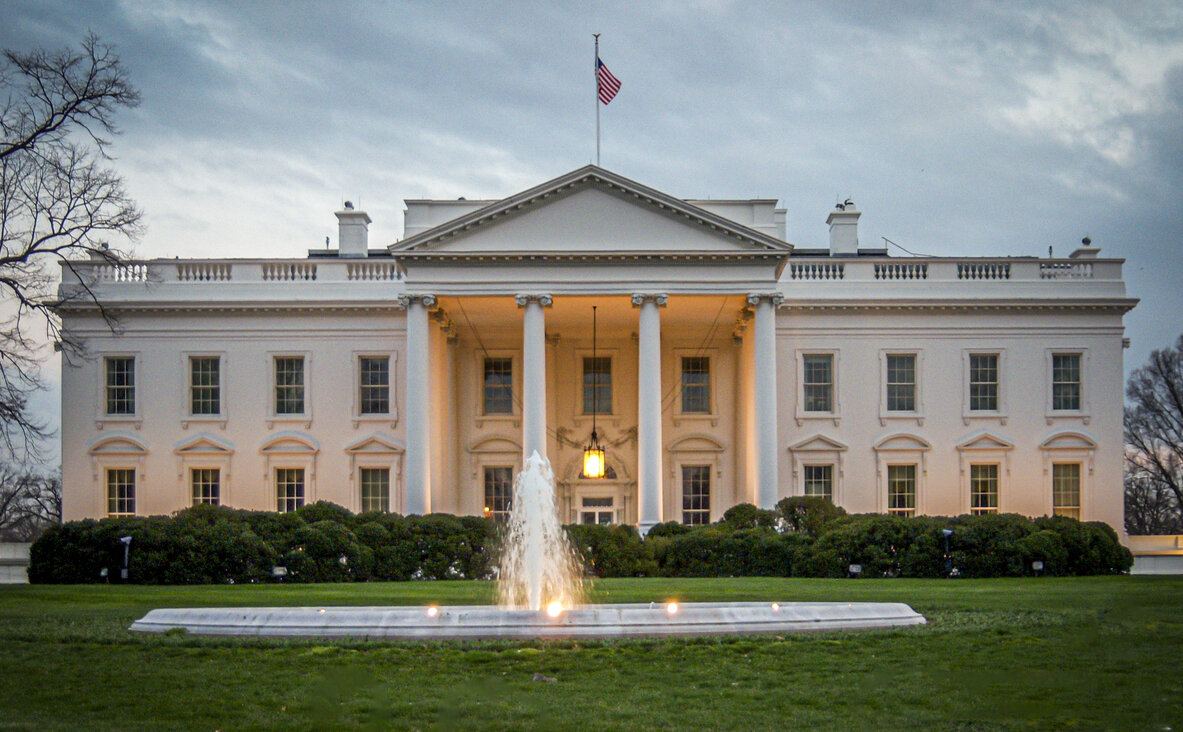Poll suggests three-person race for Manhattan Congressional seat
Reps. Jerry Nadler and Carolyn Maloney, two veteran Democrats, are tied at 31% in rare incumbent-vs.incumbent primary for New York’s 12th District

Reps. Jerry Nadler and Carolyn Maloney, and Suraj Patel are candidates in the August 23 Democratic primary for New York’s 12the Congressional District. Photo by Drew Angerer/Getty Images
A political newcomer says he is within striking distance of Reps. Jerry Nadler and Carolyn Maloney, two veteran Democrats who are competing against one another in the Aug. 23 primary for the redrawn 12th Congressional District, which includes Manhattan’s Upper East Side and Upper West Side.
An internal poll of 300 likely voters shared by the campaign of Surja Patel, a self-described “pragmatic progressive”, found Nadler and Maloney tied with 31%, and Patel 25%. Conducted by Whitman Insight Strategies between July 23-27 via landline and texts, the poll has a margin of error of plus or minus 5.6 percentage points.
The Forward is co-hosting a candidate forum Aug. 10 next week at the Temple Emanu-El Streicker Center, in partnership with New York Jewish Agenda, and the Jewish Community Relations Council of New York. Registration to attend in person or online is currently open.
The district includes a significant number of Jewish voters — about 30% of electorate in the Democratic primary, according to data analyzed by Prime New York, a consulting firm, for the Jewish Community Relations Council.
The Nadler campaign has invoked the congressman’s Jewish faith during the campaign, warning that the defeat of the “most senior” Jewish House member will have “national implications.” Maloney, a Presbyterian, is considered an ally of the Jewish community with a strong pro-Israel record.
In a memo attached to the poll results, the Patel campaign said primary voters will choose between “politicians who are more interested in maintaining their own power than in fighting for the issues that matter to our district, versus a new generation of leadership in Washington.” Patel bills himself as an underdog, and highlights his refusal to accept corporate PAC money, contrasting it to his expectation that Maloney and Nadler will flood the airwaves with ads supported by “outside spending from dark money groups.”
The pollster suggested that both Maloney and Nadler have bumped up against a ceiling of about 30% of the vote. According to the poll, 42% of respondents said they are not committed to reelect either incumbent, and 13% are still undecided. Voters may also be confused about their choice in the primary. Twenty-eight percent of respondents said they want to see both Nadler and Maloney win reelection, while a smaller cohort of voters — 16% and 14% respectively — preferred one over the other.
In an interview, Patel said he senses momentum has shifted in his favor with the two incumbents engaged in increasingly negative campaigns, and voters responding positively to his approach. “We are on the verge of one of the biggest political upsets in American history,” he said.
The last survey not generated by a candidate or party on the race showed Maloney with a 10-point lead over Nadler.
Patel said that his strong support of Israel is resonating with Jewish voters in the district. “In me they found a candidate now that checks both boxes in a very unique way, both as a person of color and a non-Jewish candidate, to be an ardent supporter of the U.S.-Israel relationship for the coming decades,” he said.
















